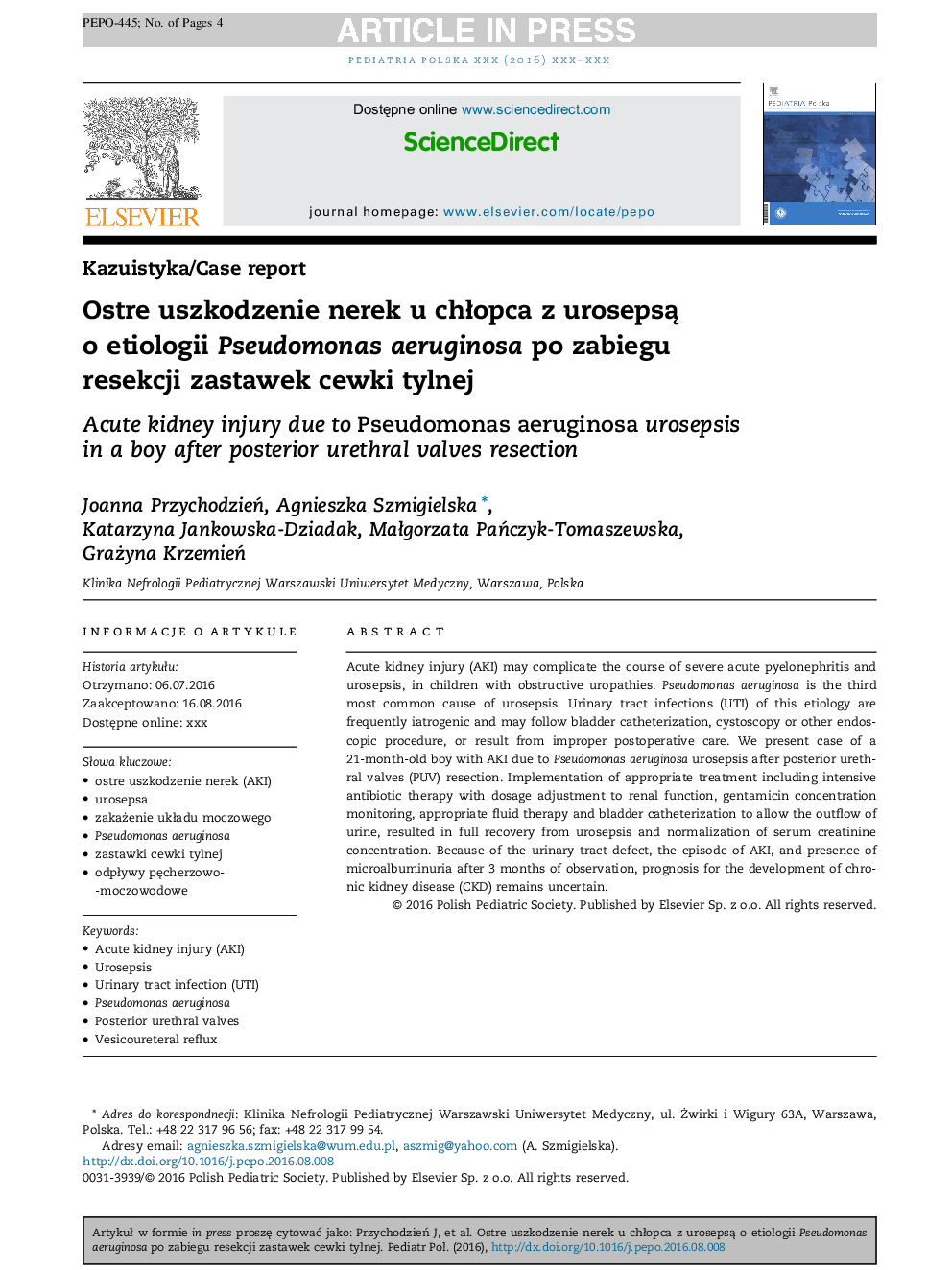| Article ID | Journal | Published Year | Pages | File Type |
|---|---|---|---|---|
| 8580010 | Pediatria Polska | 2016 | 4 Pages |
Abstract
Acute kidney injury (AKI) may complicate the course of severe acute pyelonephritis and urosepsis, in children with obstructive uropathies. Pseudomonas aeruginosa is the third most common cause of urosepsis. Urinary tract infections (UTI) of this etiology are frequently iatrogenic and may follow bladder catheterization, cystoscopy or other endoscopic procedure, or result from improper postoperative care. We present case of a 21-month-old boy with AKI due to Pseudomonas aeruginosa urosepsis after posterior urethral valves (PUV) resection. Implementation of appropriate treatment including intensive antibiotic therapy with dosage adjustment to renal function, gentamicin concentration monitoring, appropriate fluid therapy and bladder catheterization to allow the outflow of urine, resulted in full recovery from urosepsis and normalization of serum creatinine concentration. Because of the urinary tract defect, the episode of AKI, and presence of microalbuminuria after 3 months of observation, prognosis for the development of chronic kidney disease (CKD) remains uncertain.
Keywords
Related Topics
Health Sciences
Medicine and Dentistry
Dermatology
Authors
Joanna PrzychodzieÅ, Agnieszka Szmigielska, Katarzyna Jankowska-Dziadak, MaÅgorzata PaÅczyk-Tomaszewska, Grażyna KrzemieÅ,
